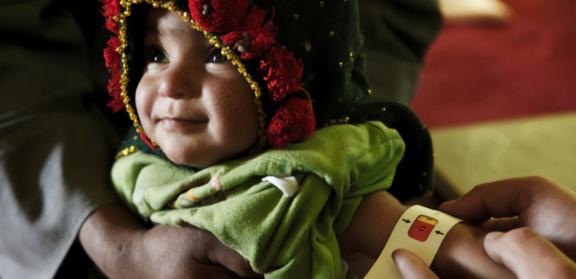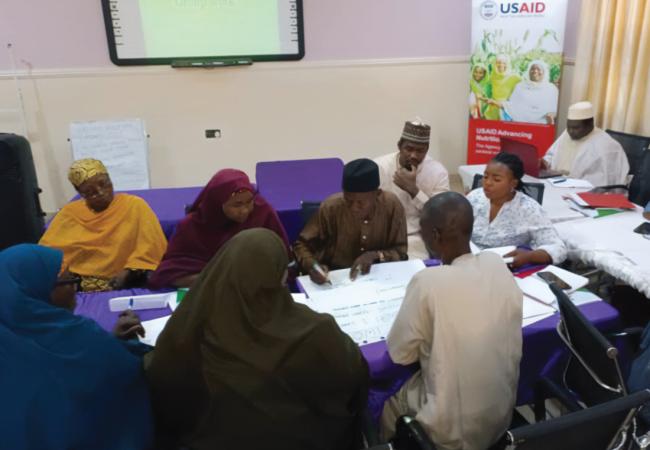
Wasting is an acute and life-threatening form of malnutrition. The United Nations estimates that of the 45 million children under the age of five who are wasted, 13 million are severely wasted. One in five deaths among children under five is attributable to severe wasting. Although often associated with emergency situations and food insecurity, wasting affects children in more stable contexts, too. Because wasted children have a high risk of mortality, reducing the burden of wasting is a public health priority, featured in the World Health Assembly targets and the Sustainable Development Goals. USAID Advancing Nutrition helped USAID build evidence on effective and sustainable ways to prevent and treat wasting. This includes strengthening coordination and collaboration between USAID partners and projects, documenting food-based approaches, and understanding contextual factors that may influence program design and quality.
Management of Moderate Wasting with Local Foods in Nigeria, Senegal and Uganda
According to the 2023 Joint Child Malnutrition Estimates, 31.3 million children have moderate wasting. Despite this significant need, much of the global attention to wasting was focused on its severe form because of the higher associated mortality risk. However, the number of children with moderate wasting is significantly higher and managing it effectively is an important way to prevent moderate wasting from turning into severe wasting and corresponding mortality. Until recently, there was very little global guidance on the treatment of moderate wasting. A small percentage of children with moderate wasting are reached through targeted supplementary feeding programs using commercially prepared specialized fortified foods, largely in humanitarian settings. In the absence of global guidance, practitioners have developed many innovative approaches to address moderate wasting using locally available foods. However, minimum standards for these approaches were not always in place and better global guidance on how these approaches should be designed and implemented could strengthen programming.
To address this gap, USAID Advancing Nutrition conducted a series of case studies in Nigeria, Senegal, and Uganda to document a range of approaches that use local foods for the management of moderate wasting. In addition to the case studies, we conducted a cost-efficiency analysis of the two approaches we documented in Nigeria - Tom Brown and Porridge Mum - and also completed an initial assessment in five states in Nigeria to help inform future scale-up of these approaches in the country.
The findings from this body of work are particularly relevant to practitioners in light of the 2023 WHO Guideline on the Prevention and Management of Wasting and Nutritional Oedema (Acute Malnutrition) in Infants and Children Under 5 Years, which includes guidance on managing moderate wasting for the first time, and emphasizes the use of local and family foods for nutritional support. Learn more.
Wasting Prevention and Management in the Democratic Republic of Congo
In the Democratic Republic of Congo (DRC), USAID Advancing Nutrition focused on understanding the persistent challenges of preventing and managing acute malnutrition. This included findings on coordination and collaboration among implementing partners, last-mile supply chain challenges to distributing ready-to-use-therapeutic foods, and understanding how blanket supplementary feeding programming is implemented in DRC. Learn more about USAID Advancing Nutrition's work in the DRC.
Facilitating Learning on The Drivers of and Solutions To Persistent Acute Malnutrition in The Arid And Semi-Arid Lands of Kenya
USAID Advancing Nutrition supported the USAID Kenya Mission, the Bureau for Humanitarian Assistance, and Nawiri implementing partners in convening, documenting and disseminating their collaboration, and learning related to the drivers of and solutions to addressing persistent acute malnutrition in Marsabit, Isiolo, Samburu, and Turkana counties. Learn more.
